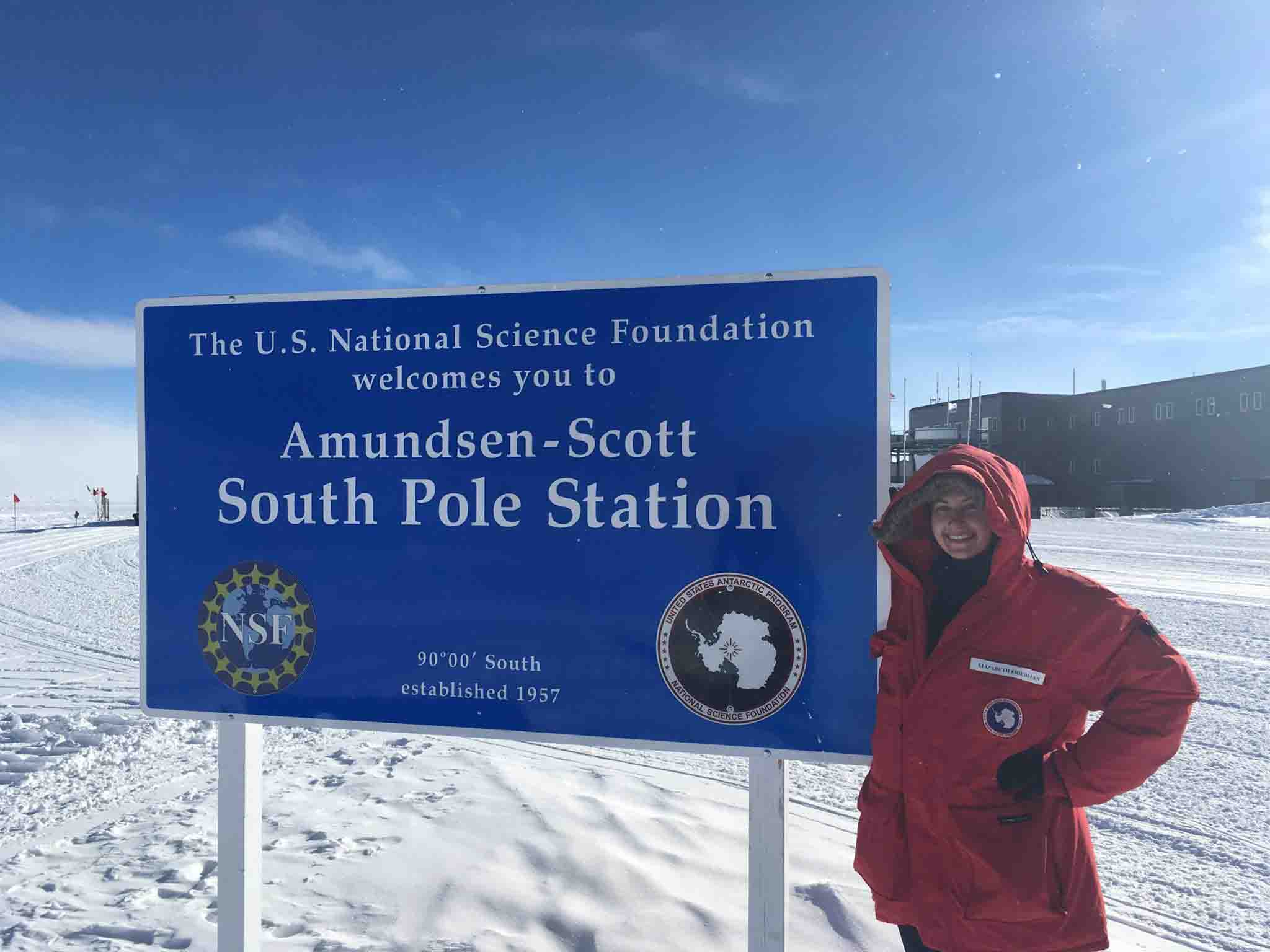
Since arriving at the University of Maryland in 2015, physics Ph.D. student Liz Friedman has immersed herself in much of what the University of Maryland has to offer.
“It is important to remember that graduate school is a marathon and not a sprint,” Friedman said.
Friedman has been an active member of the Graduate Student Government, served as the treasurer of the Women in Physics group, conducted research in Antarctica, ran a few Tough Mudder obstacle courses, received multiple fellowships, and got married.
“The balancing act boils down to my research group encouraging a healthy work-life balance,” said Friedman, who is a member of Professor Kara Hoffman’s research group. “I am very lucky to have supportive advisors, and I was very careful to join a group where graduate students are happy and take time off from work.”
Before arriving at Maryland, Friedman earned her bachelor’s degree in physics from UCLA and then worked as a science teacher at a small private nonprofit school in Los Angeles for a year before beginning her graduate studies.
"When I was in eighth grade, I learned about neutron stars and got really excited about astrophysics," she said. "It was very rewarding to teach my favorite subject to my own class of eighth graders."
Friedman had the freedom to develop the curriculum, which was a dream come true for her.
"I got to do all the fun things like teach them about atoms and chemistry for the first time,” Friedman said. “They were so excited because these topics were brand new for many of them. Have you ever done flame tests with teenagers? It is amazing."
Her time as a teacher helped prepare Friedman for graduate school.
“I ask myself, ‘How would I explain this to someone else if I had to teach it?’ And that usually helps me organize what I know and what I don't know,” Friedman said. “If I can't thoroughly explain it, then there's something I'm missing.”
Friedman conducts her dissertation research at the IceCube Neutrino Observatory, which is the first neutrino detector to measure neutrinos beyond our solar system. It was designed to observe the cosmos from deep within the South pole ice. Friedman traveled to the observatory in Antarctica twice for one month to deploy crucial hardware for detecting neutrinos, which she helped to debug and test.
When she wasn’t working on IceCube, Friedman enjoyed spending time with her fellow South pole residents and even volunteered to be a wine steward for Christmas dinner on station.
"The most surprising thing is how much fun stuff there was to do,” she said. “Everybody hangs out, and it is a really nice social place. I miss it."
Embracing the community around her is something Friedman prides herself on. She has been able to make a difference on the campus level as a physics representative for the Graduate Student Government.
“The Graduate Student Government is big enough that you feel like you're making an impact,” she said. “It keeps you engaged with the campus and with what's going on.”
Back in the department, as a member of the graduate committee, Friedman helped improve the physics graduate student lounge; plan monthly potlucks for physics graduate students; and run the mentoring program, which included matching current graduate students with incoming first-year students.
“Being a part of graduate committee is one of the things I'm really proud of,” Friedman said. “I like getting people engaged in the community.”
Written by Chelsea Torres
Listen to Liz Friedman and Professor Kara Hoffman discuss the IceCube observatory at the South Pole:
Part 1 Part 2.